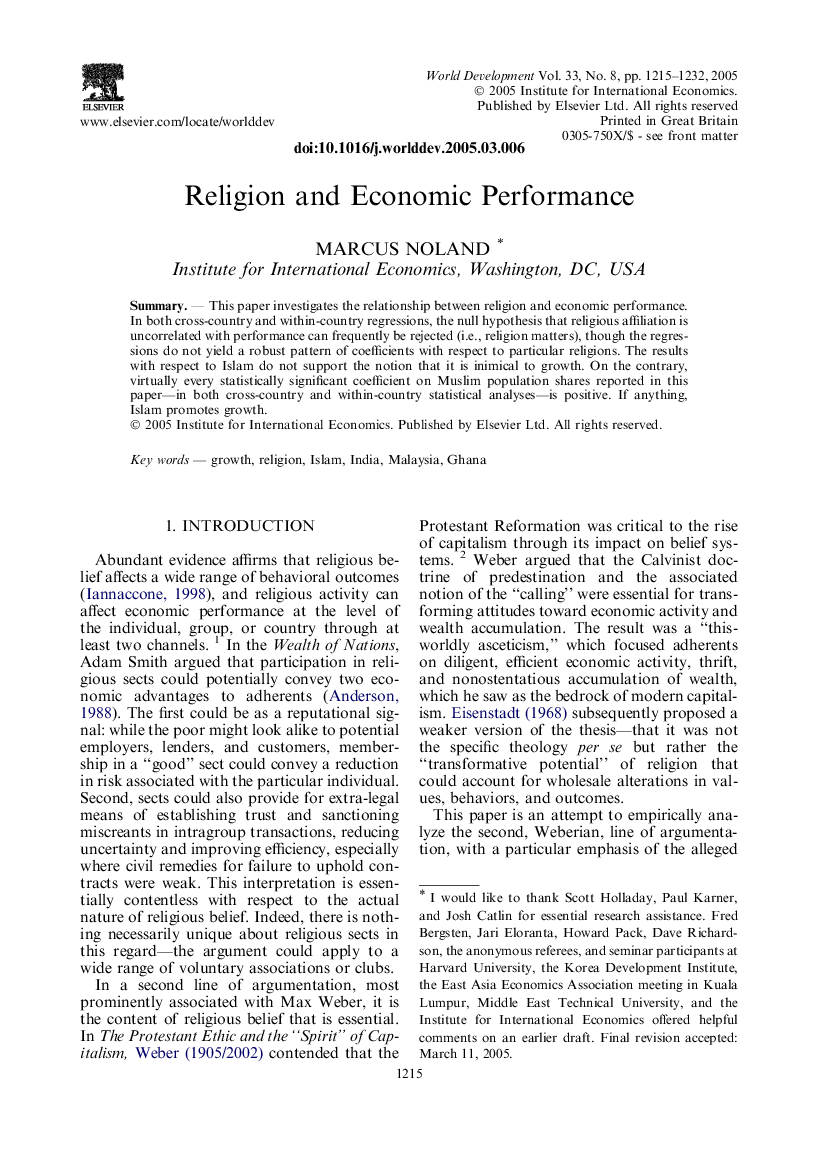| Article ID | Journal | Published Year | Pages | File Type |
|---|---|---|---|---|
| 10486525 | World Development | 2005 | 18 Pages |
Abstract
This paper investigates the relationship between religion and economic performance. In both cross-country and within-country regressions, the null hypothesis that religious affiliation is uncorrelated with performance can frequently be rejected (i.e., religion matters), though the regressions do not yield a robust pattern of coefficients with respect to particular religions. The results with respect to Islam do not support the notion that it is inimical to growth. On the contrary, virtually every statistically significant coefficient on Muslim population shares reported in this paper-in both cross-country and within-country statistical analyses-is positive. If anything, Islam promotes growth.
Related Topics
Social Sciences and Humanities
Economics, Econometrics and Finance
Economics and Econometrics
Authors
Marcus Noland,
